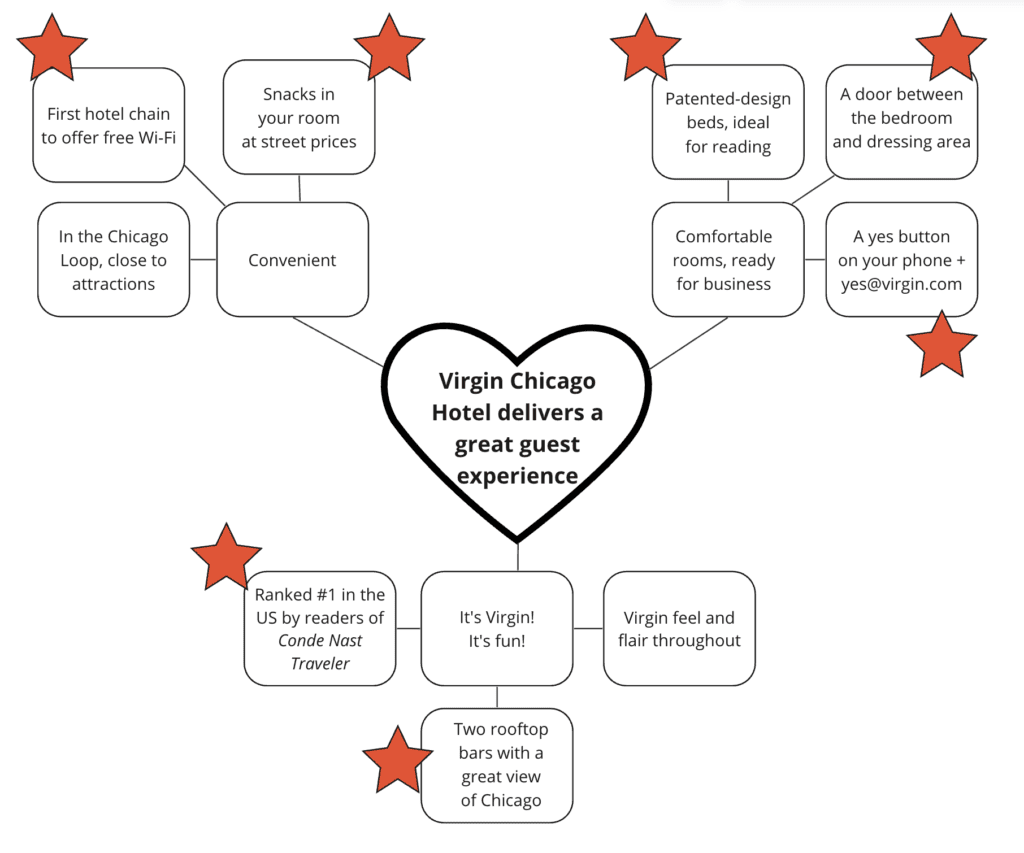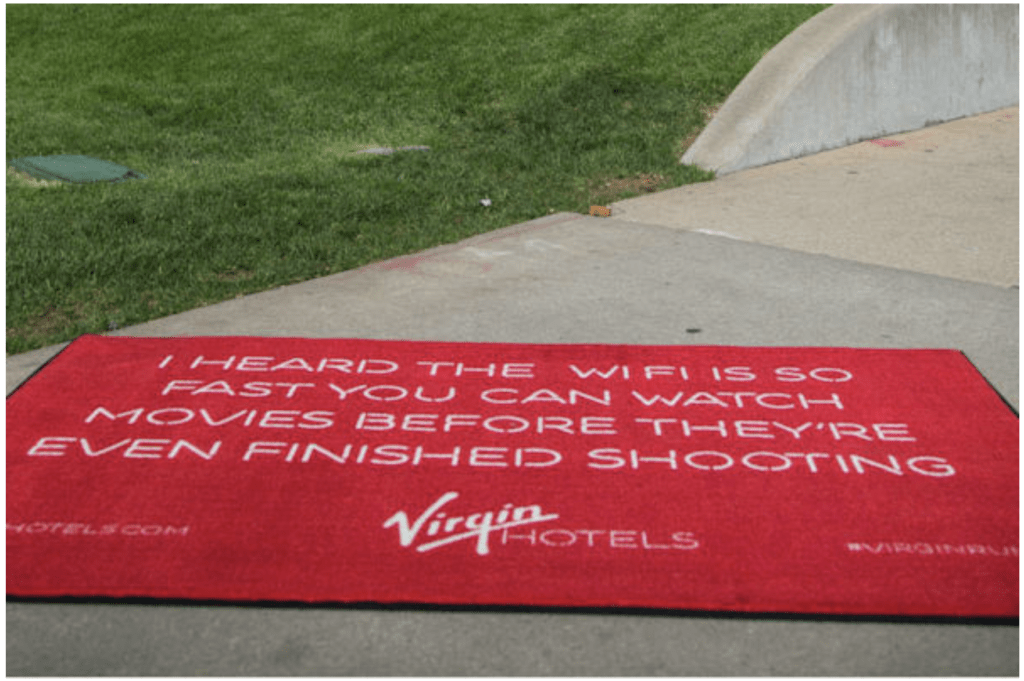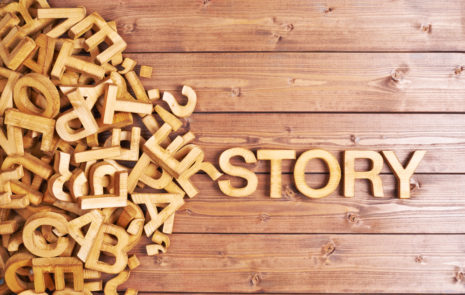
“How to tell if ongoing messages differ enough to be impactful in seconds?”
Does your message differ enough to make an impact in seconds?
This question about differentiated marketing messages is one of the Top 100 questions on content marketing. It comes from a marketer at nonprofit Be the Match.
Marketing messages have many jobs to do
Among many jobs to do, the three most important jobs for your Message Map are:
• Win people’s attention by telling them what’s in it for them in your main message, which we call the heart of your message. Why do you need one main message? Because people absorb only one main message at a time.
• Give people reasons to believe the heart of your message, by backing it up with three positive points. Reasons to believe must fit your audience’s worldview, so they find your message compelling.
• Differentiate your message from others. Differentiation usually appears in proof points – three points that support each positive point.
To picture the relationship of your message elements, here’s the anatomy of a 2-minute Message Map. It shows the heart of your message, positive points, and proof points.

Marketers often are tempted to elevate their differentiation to a positive-point or even to the heart of the message.
Here’s a guideline: If your benefit is the first of its kind in the world and life-changing for your audience, it belongs in the heart of your message. But if your benefit reflects incremental progress (cheaper, faster, better than before), it more likely belongs in positive points.
Why? Because messages have three jobs to do, in a certain order: tell people what’s in it for them, establish credibility, and show how it’s different.
Hook your audience’s attention, then differentiate
When the heart of your message and positive points land quickly – in 7 seconds or 23 words – you pave the way to showing how you’re different from others.
Here’s an example – a Message Map from Sir Richard Branson’s first Virgin Hotel, which opened in Chicago in 2015.
The Virgin Chicago Hotel is a great example because it shows how Richard Branson disrupts markets as he enters a new category.

Note: the heart of the message and positive points make statements that other hotels also can make.
But at launch time, everything in the starred proof points was absolutely unique to Virgin. The hotel launched with a highly differentiating message and an experience that delivered on its promise.
My favorite proof point is that Virgin was the first hotel in Chicago to offer free Wi-Fi, at a time when competitors were causing discontent by charging $10 or $20 a day.
Make your differentiation into news
To dramatize its free Wi-Fi differentiator, the Virgin Hotel created a “Free the Wi-Fi” van that broadcast free Wi-Fi at competing hotels. Each day, the van pulled up in front of a top Chicago hotel to offer free Wi-Fi from Virgin, as this Chicago Business Journal story reports.
In front of competing hotels, Virgin rolled out a provocative welcome mat like this one, in Virgin’s cheeky brand voice: “I heard the Wi-Fi is so fast you can watch movies before they’re even finished shooting.”

Soon, many hotels started to offer free Wi-Fi to members of their loyalty programs. Virgin responded by offering free Wi-Fi in the public areas of its hotels.
Virgin also differentiated with transparent pricing. As Branson said, “There won’t be hidden charges, and you won’t get charged $10 for a chocolate bar you know you can buy at a store for $2.”
Years after its launch, the Virgin Chicago Hotel continues to:
- Use a single “yes” button on the hotel phone, instead of all the confusing buttons you find on other hotel phones.
- Deliver printouts to your room when you email a document to yes@virgin.com.
- Place double doors between the bedroom and the dressing area so you can snooze while your partner takes a Zoom call in the next room.
Yes, differentiation really matters – for Virgin and for every brand.
The Virgin Hotel message and story shows how dramatic differentiation works. But, over time, differentiated positions can erode as competitors copy the strategy.
That’s why keeping your brand differentiated is a never-ending job.
Say what makes you different, but not too soon
Establish differentiation in your message as early as you can. Usually, that’s after people see how they’ll benefit and why they should believe you.
Remember, differentiation matters only after:
• People see benefits for themselves.
• People believe you.
“How can we tell ongoing messages – that differ enough to be impactful, in seconds?” is one of the Top 100 Questions on content marketing. Here are the answers.
Related Posts
Simple Marketing Messages Succeed
Simple marketing messages succeed and resonate with people. Many of us know the acronym KISS: Keep It Simple, Stupid. Did you know the phrase...
Don’t Insult Your Audience: 13 Messaging Mistakes to Avoid
The presidential campaign has brought forth a bumper crop of jumbled, incoherent messages. As marketers work on their companies’ stories, we can learn a lot from...
Marketers: Are you getting value out of your analytics?
The field of marketing analytics has been around for years, yet many marketers I speak with still feel they’re not getting the most out...
Are you earning brand loyalty?
I had the luxury of spending last month in Nafplio, Greece, where I was embraced by the locals. Restaurateurs, shopkeepers, and even the gentleman...





